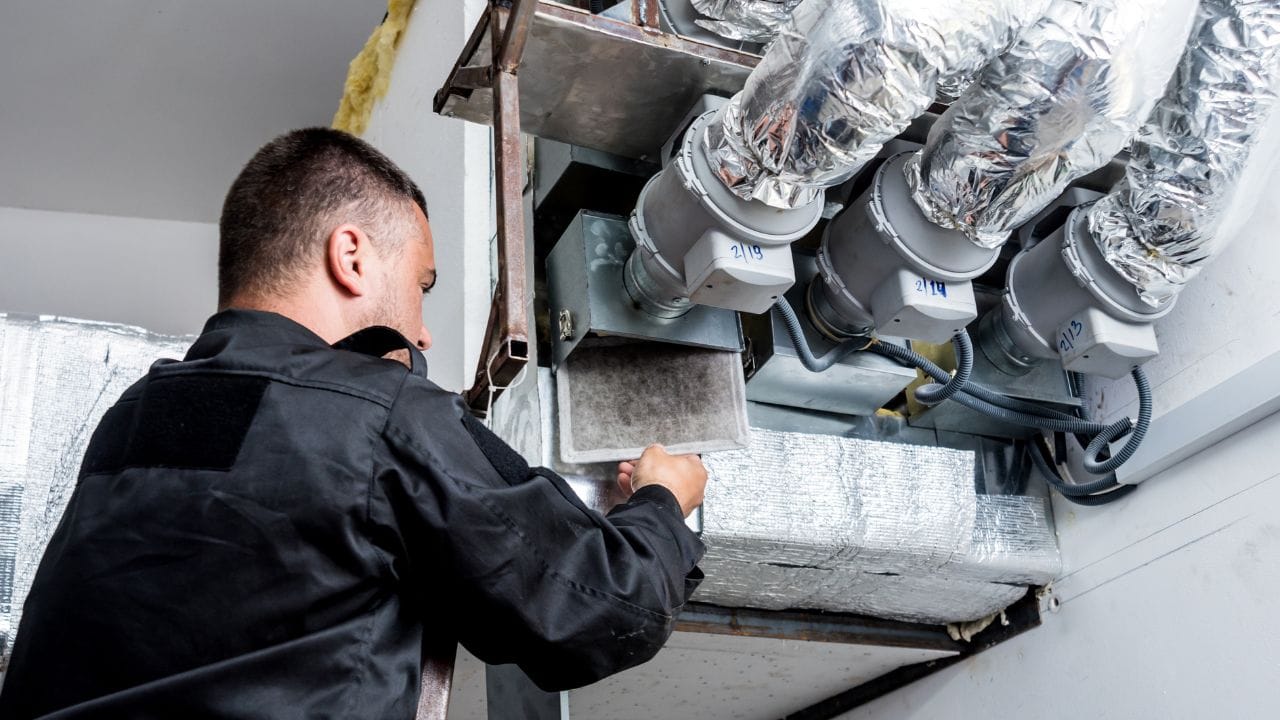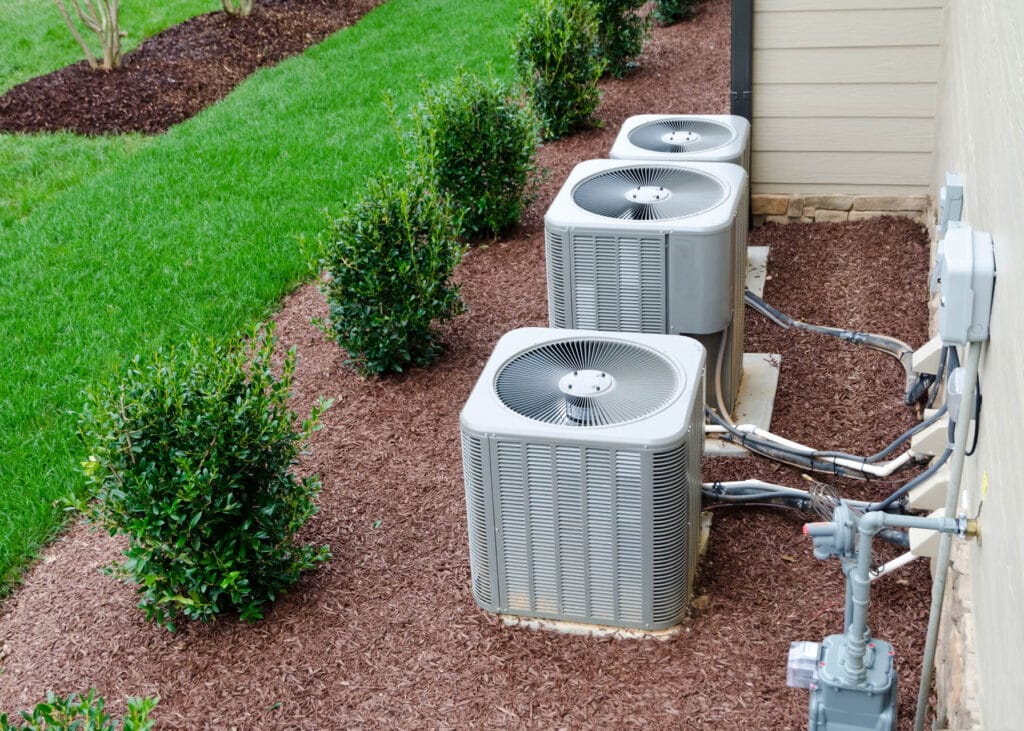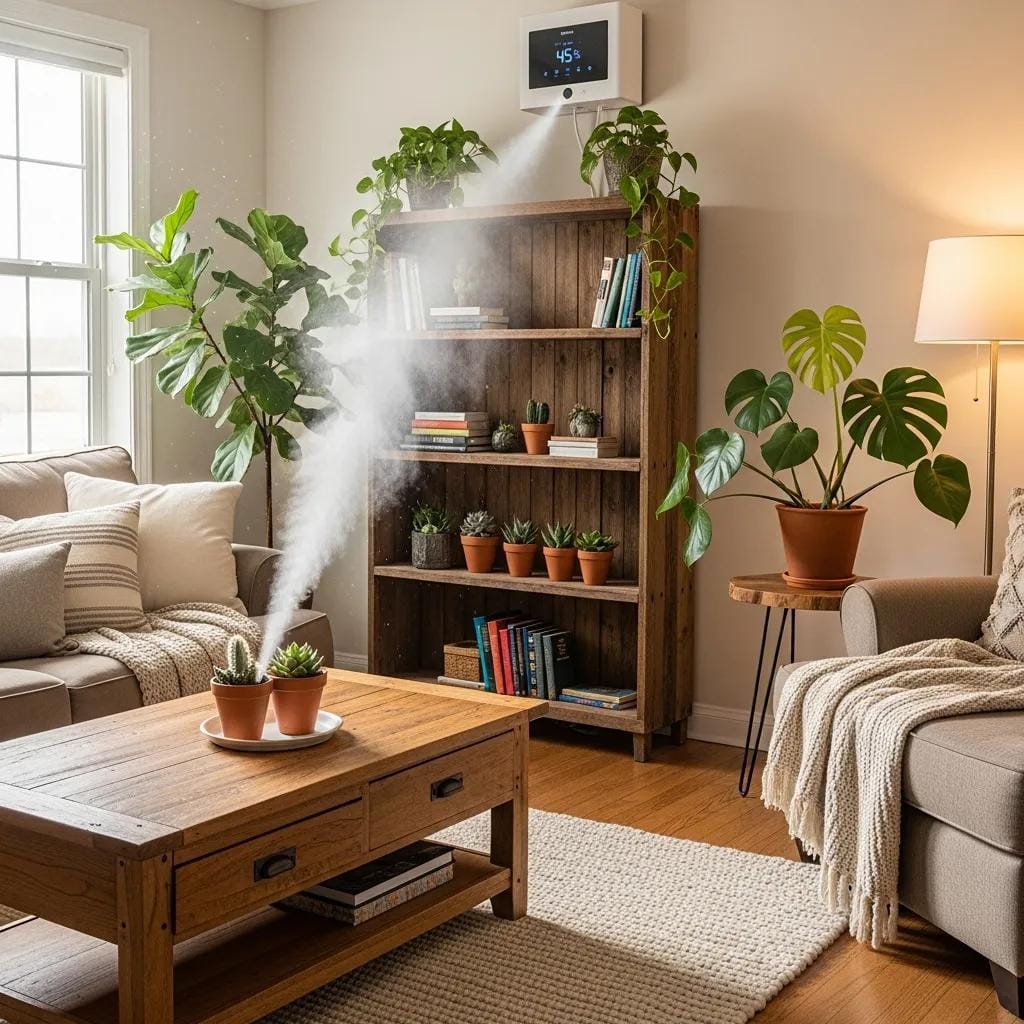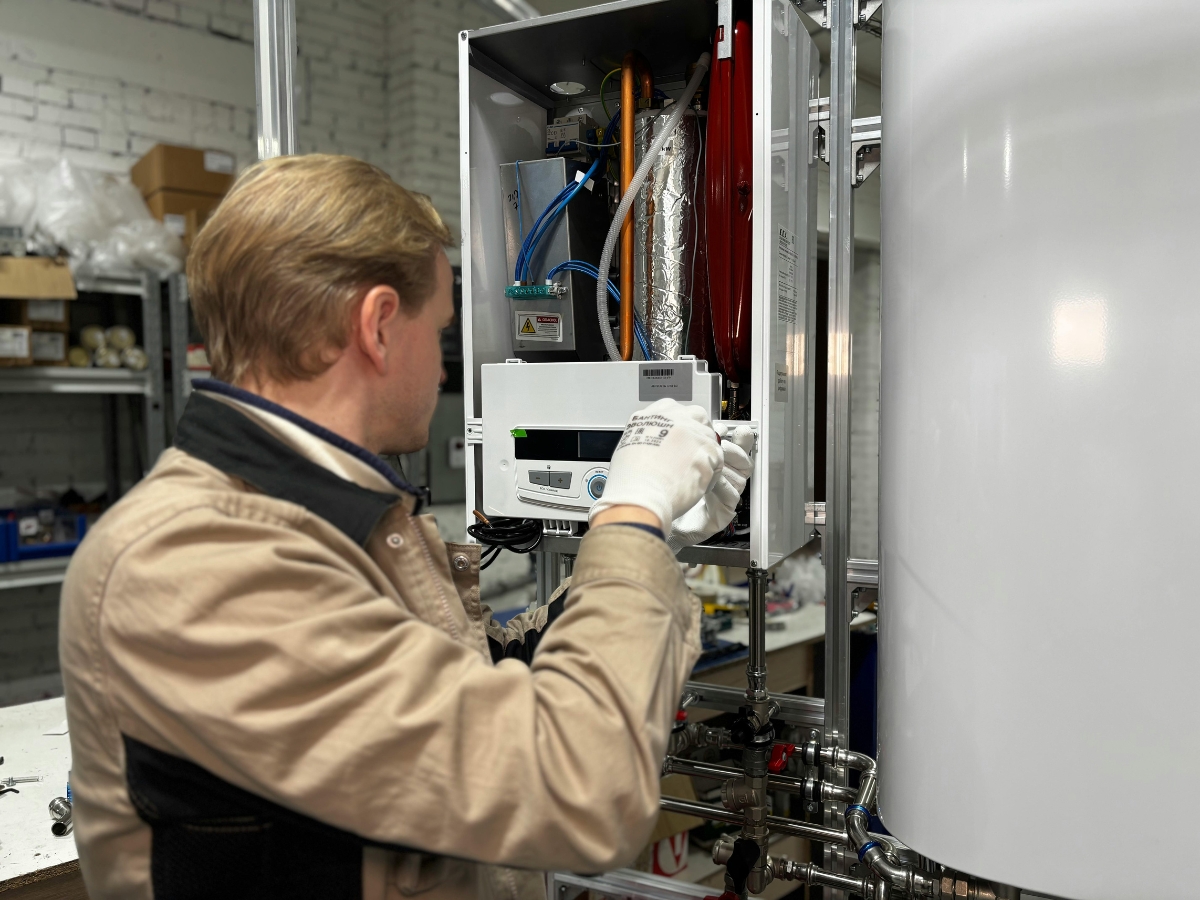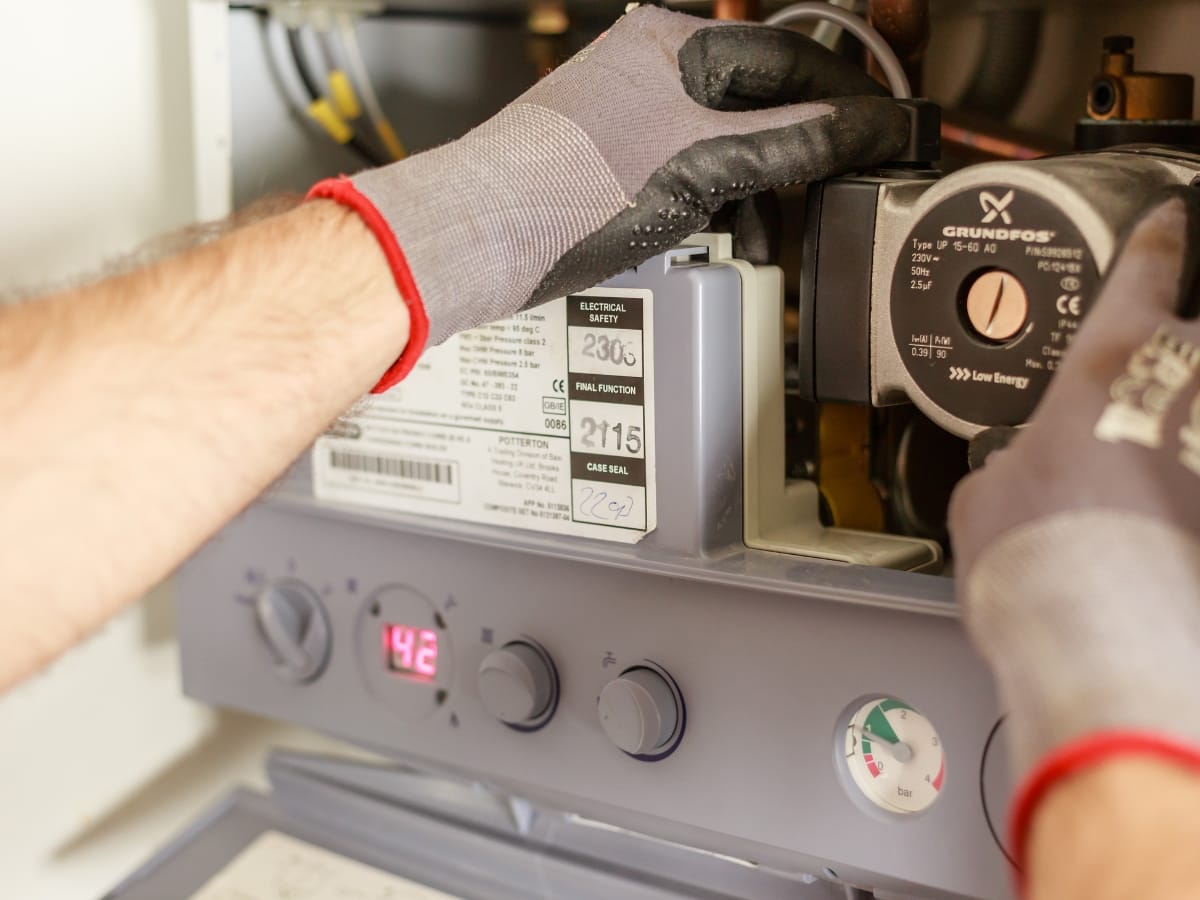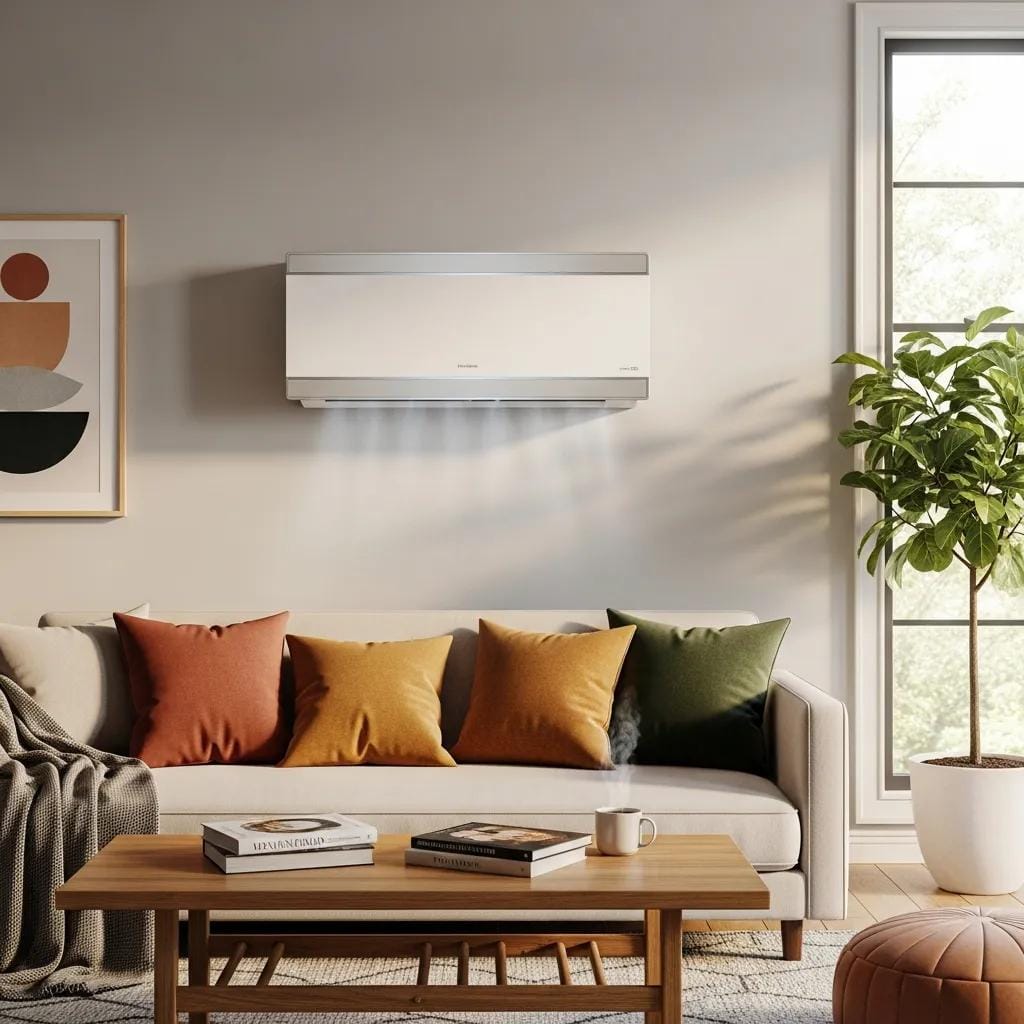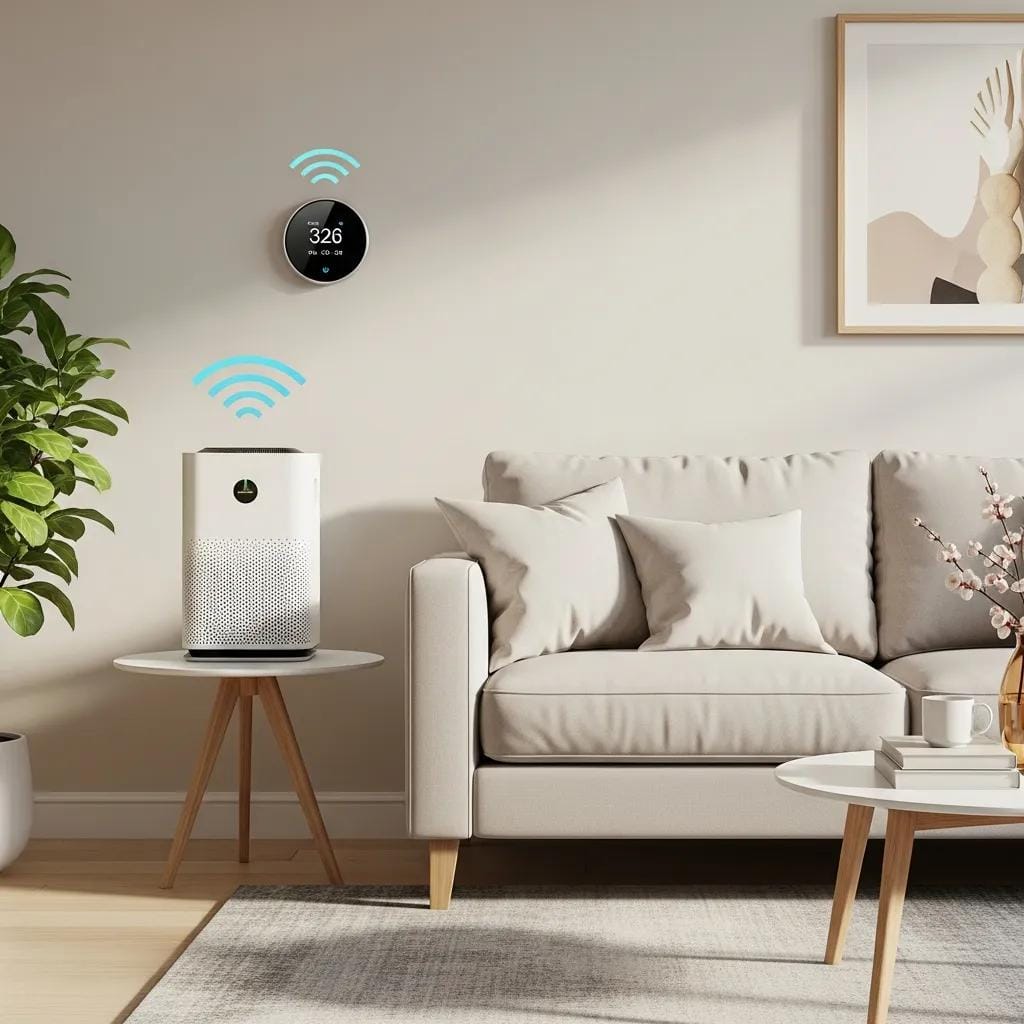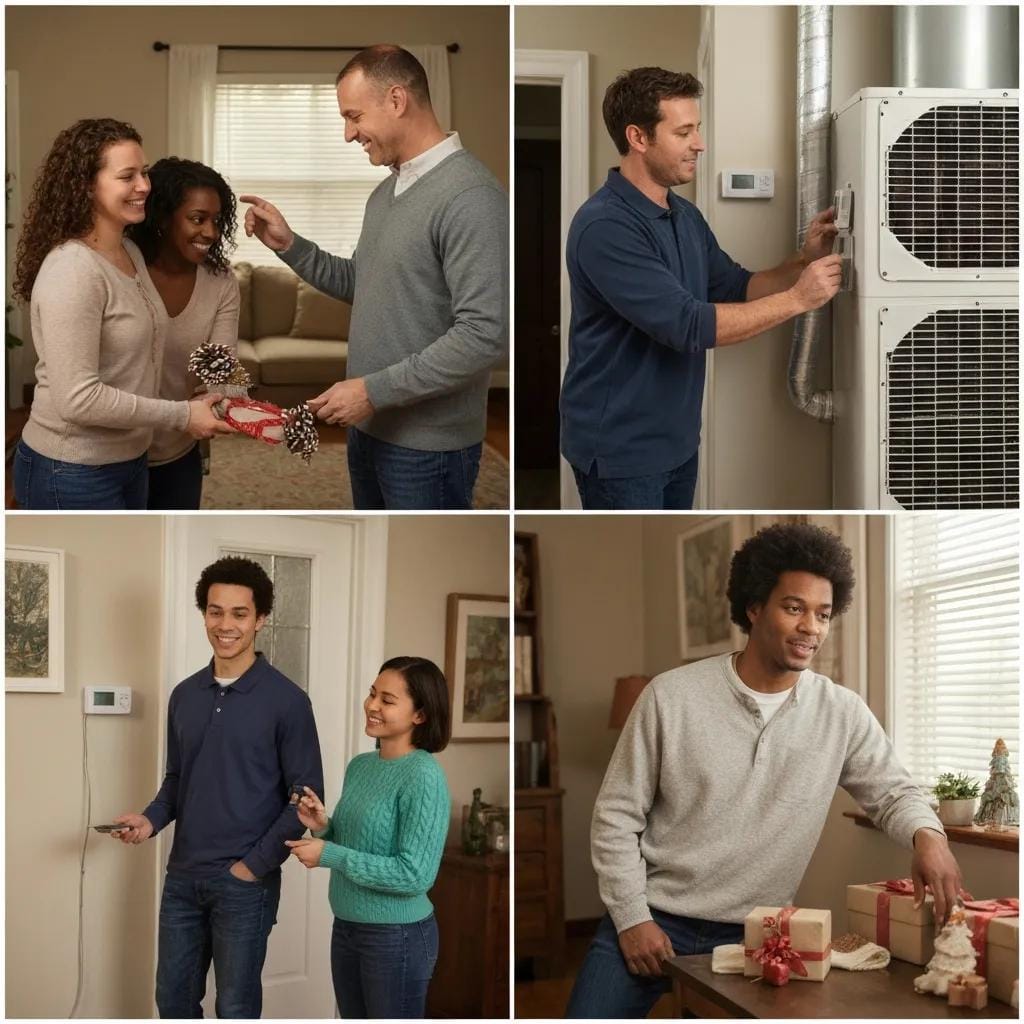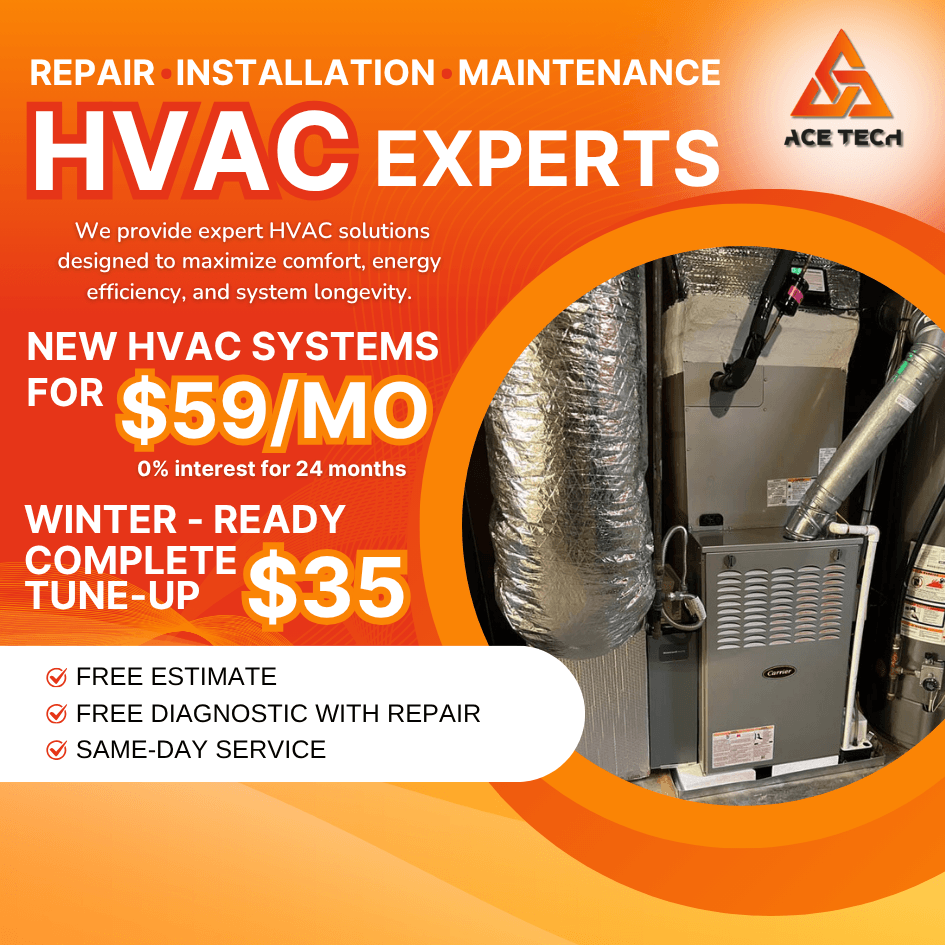Your AC is your home’s best defense against sweltering summer heat. But when something goes wrong, it doesn’t always stop working immediately—your unit will often show warning signs before breaking down. Recognizing the signs your AC needs repair early can save you from unexpected discomfort, high energy bills, and costly emergency fixes.
From weak airflow to unusual noises, your AC often signals when it’s struggling to perform. Catching these issues early can prevent bigger problems and extend the life of your system.
In this guide, we’ll break down the most common issues with air conditioners and when to call professionals before a minor issue turns into a major headache.
Signs Your Air Conditioner Needs Repair
1. Unusual Noises Coming from Your AC
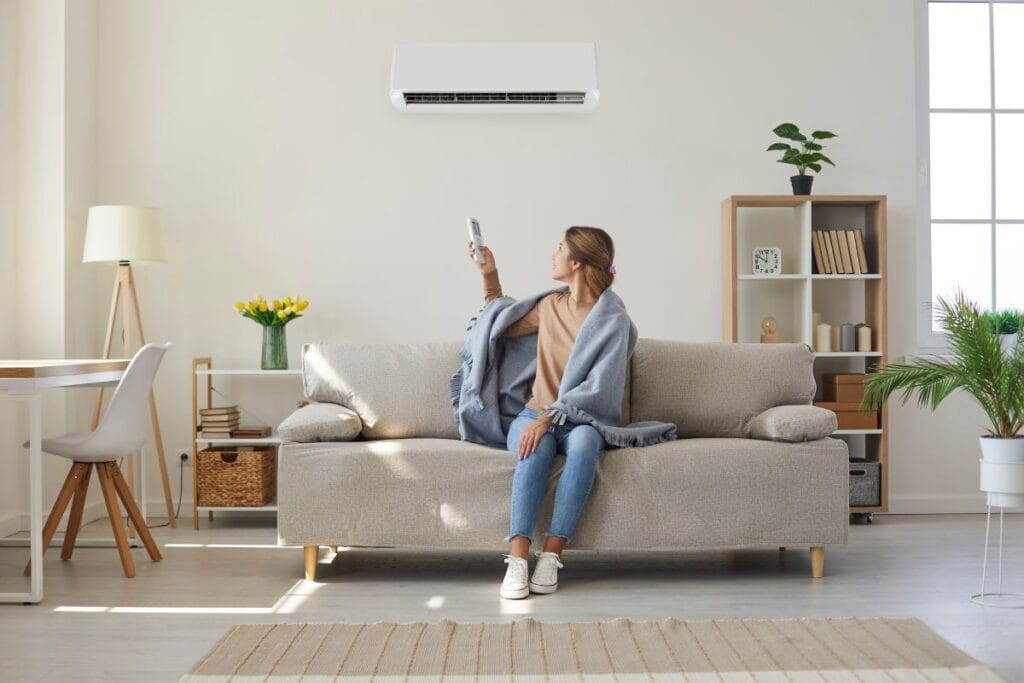
Your AC should run relatively quietly, with only a gentle hum as it cycles on and off. If you start hearing strange sounds, it’s a clear sign that something isn’t right. Different noises indicate different problems, and ignoring them could lead to major damage.
Common Noises & Their Causes
- Grinding: This often signals motor issues, such as worn-out bearings or lack of lubrication. Left unchecked, it can cause overheating and motor failure.
- Squealing: A high-pitched squeal may mean a worn-out fan belt or problems with the blower motor. Some units no longer use belts, but if yours does, a replacement may be needed.
- Banging or Clanking: Loud banging sounds usually indicate loose or broken components inside your AC—such as a dislodged fan blade or compressor issue. If you hear this noise, turn off your unit immediately to prevent further damage.
Why It’s a Problem
Ignoring strange sounds from your AC can lead to serious consequences. A failing motor, loose components, or blower issues can strain the entire HVAC system, forcing it to work harder than necessary. This not only leads to higher energy bills but also increases the risk of a complete system failure, requiring expensive AC repairs.
Solution
As soon as you hear unusual noises, turn off your AC to prevent further damage. Call an HVAC system professional to diagnose the problem and make the necessary repairs. Catching these issues early can save you from costly breakdowns and extend the life of your AC unit.
2. Weak or Poor Airflow from Your AC
A properly functioningunit should distribute cool air evenly throughout your home. If you notice weak airflow coming from your vents or some rooms feeling warmer than others, it’s a clear sign that your AC is struggling. Poor airflow not only reduces comfort but also forces your system to work harder, leading to higher energy bills and potential breakdowns.
Signs of Poor Airflow
- Weak airflow from vents, even when the unit is running at full capacity.
- Some rooms feel significantly warmer or cooler than others.
- Your AC takes longer than usual to cool your home.
Potential Causes
- Clogged Air Filters – Dirty or clogged filters restrict airflow, making it harder for your AC unit to circulate cool air. This also reduces energy efficiency and can strain the system.
- Blocked Ductwork – Dust, debris, or even mold buildup inside your ductwork can obstruct airflow, preventing cool air from reaching certain rooms.
- Failing Blower Motor – The blower motor is responsible for pushing air through your HVAC system. If it’s not working properly, airflow will be weak or inconsistent.
- Leaky or Damaged Ducts – If there are leaks in your duct system, a portion of the cooled air may be escaping before it reaches your living spaces.
Why It’s a Problem
Poor airflow forces your air conditioner to work harder than necessary, leading to higher energy bills and unnecessary strain on your system. If left unchecked, this can shorten the lifespan of your cooling systemand result in costlyrepairs down the line.
Solution
- Check and Replace Air Filters Regularly – A clogged air filter is one of the easiest problems to fix. Replace filters every 1–3 months to keep airflow smooth and efficient.
- Schedule Routine HVAC Maintenance – A professional HVAC system technician can inspect your ductwork, clean out any blockages, and ensure your cooling system is operating at peak performance.
- Consider Duct Cleaning or Repairs – If your ductwork is damaged or clogged, sealing leaks and removing debris can significantly improve airflow.
If you notice weak airflow, don’t ignore it—addressing the issue early can help prevent a complete system failure and keep your air conditioner running efficiently all season long.
Five Signs Your AC Needs Immediate Repair3. Your Air Conditioner Unit is Blowing Warm Air or Not Cooling Properly
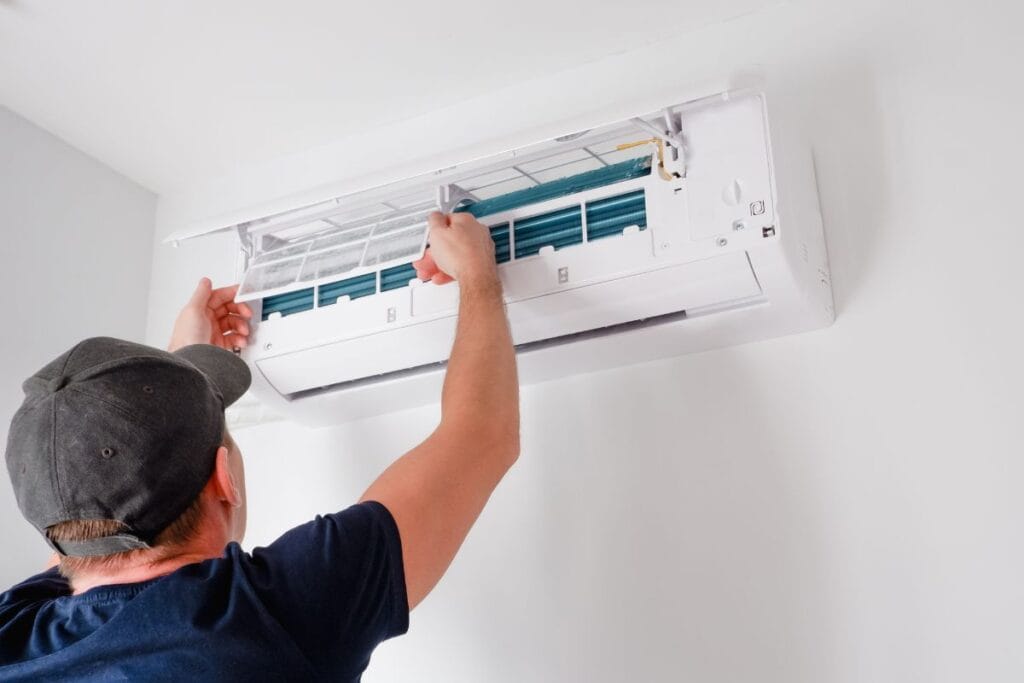
When your AC unit runs but doesn’t cool your home effectively, it’s more than just an inconvenience—it’s a sign that something is wrong. Your air conditioner is designed to provide consistent cooling, so if you notice warm air blowing from the vents or your home never reaches the desired temperature, you may need air conditioner repair.
Signs of Cooling Issues
- Your unit is running, but the air coming from the vents is warm or room temperature.
- The system takes much longer than usual to cool your home.
- Your thermostat settings are correct, but your home isn’t cooling properly.
Potential Causes
- Refrigerant Leaks – One of the most common reasons cooling systems fails to cool properly is low refrigerant levels. This problem prevents your unit from effectively absorbing and releasing heat, leading to insufficient cooling.
- Broken Compressor – The compressor is the heart of your HVAC system, responsible for circulating refrigerant. If it fails, your air conditioner won’t be able to cool the air properly.
- Dirty or Frozen Evaporator Coils – When evaporator coils are covered in dirt or ice, they can’t absorb heat efficiently, leading to warm air blowing from the vents.
- Faulty Thermostat – If your thermostat isn’t accurately reading the temperature, it might not signal the AC unit to run when needed, resulting in inconsistent cooling.
Why It’s a Problem
A lack of cool air is not just uncomfortable—it signals that yourunitis under stress. Leaks can worsen over time, causing serious damage to your air conditioner. A failing compressor or frozen coils can also lead to costly repairs or even require a full system replacement if left untreated.
Solution
- Check Your Thermostat First – Ensure your thermostat is set to “cool” and at the correct temperature. If the issue persists, there’s likely a more serious problem.
- Inspect Air Filters & Vents – A clogged filter or blocked vent can restrict airflow, making it seem like your air conditioner unit isn’t cooling effectively.
- Call an HVAC Professional – If you suspect you have this issue, a failing compressor, or coil issues, it’s best to schedule a professionalAC repair. Refrigerant handling should only be done by certified technicians.
If your unit is blowing warm air, don’t ignore it—acting quickly can prevent further damage and keep your home comfortable all summer long.
4. Water Leaks or Excess Moisture Around Your AC Unit
Your cooling systemis designed to remove excess humidity from your home, but if you notice water pooling around the system or increased indoor moisture, something isn’t working as it should. While some condensation is normal, visible leaks or dampness can signal a more serious AC problem that requires immediate attention.
Signs of Water Leaks or Moisture Issues
- Puddles of water forming near the indoor or outdoor AC unit.
- Increased humidity levels inside your home, making the air feel sticky or uncomfortable.
- A musty smell near vents or around the air con, indicating possible mold growth.
Potential Causes
- Clogged Condensate Drain Line – Your cooling system removes moisture from the air, which drains through a condensate line. If this line gets clogged with dirt, algae, or debris, water can back up and leak around the unit.
- Frozen Evaporator Coils – If your evaporator coils freeze due to restricted airflow orleaks, they will eventually thaw and create excess moisture, which can leak onto the floor.
- Leaks – This issue not only affects cooling performance but can also cause moisture buildup and lead to serious damage.
- Broken or Disconnected Drain Pan – The drain pan collects condensation and directs it outside. If it’s cracked, rusted, or improperly positioned, water may start pooling around your air conditioner.
Why It’s a Problem
Ignoring moisture problems can lead to mold growth, water damage to your home, and even electrical hazards if water reaches internal components. Additionally, leaks pose serious health and environmental risks, making professional air conditioning repair crucial.
Solution
- Check the Condensate Drain Line – If it’s clogged, try flushing it with a mixture of vinegar and water or use a wet/dry vacuum to clear debris.
- Turn Off Your Air Conditioner if Coils Are Frozen – If you notice ice on the coils, turn off your air conditioning unit and let it thaw before calling an HVAC system professional.
- Schedule a Professional Inspection – A technician can diagnose problems, repair a damaged drain pan, or unclog persistent drainage issues to prevent further damage.
Water leaks are more than just a nuisance—they can lead to major damage if left unchecked. If you spot moisture or puddles around your air conditioner unit, don’t wait—get it inspected before the problem worsens.
5. Sudden Spikes in Energy Bills Due to Air Conditioning Problems
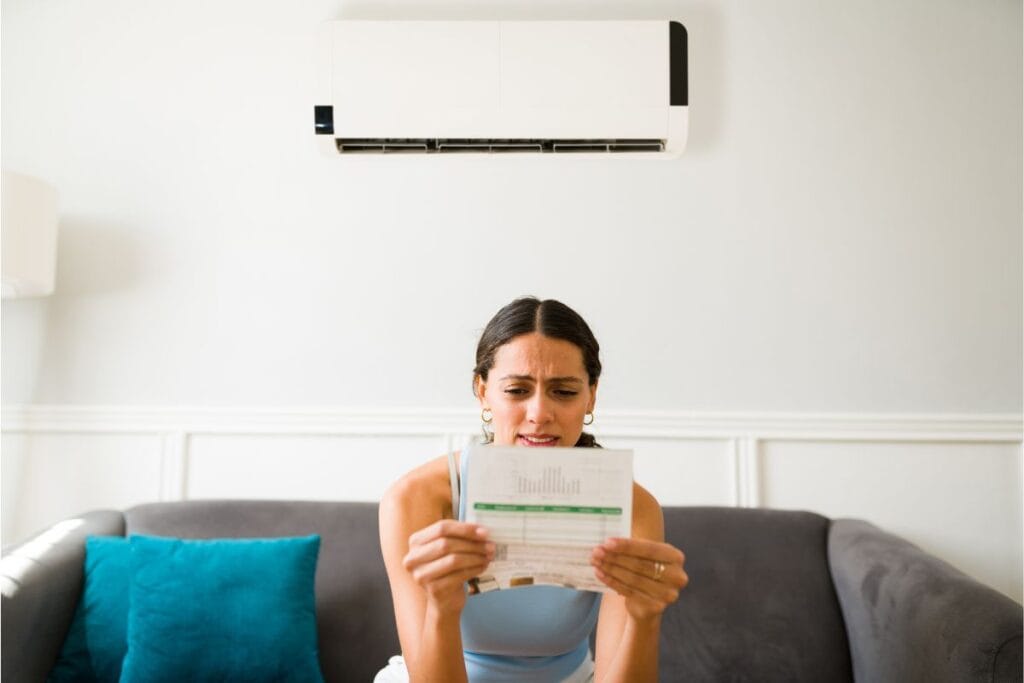
If your energy bills have unexpectedly increased, your AC could be the culprit. While seasonal changes naturally affect energy usage, a sudden and unexplained spike in costs often means your air conditioner unit is working harder than it should due to underlying issues.
Addressing these problems early can save you from excessive utility costs and prevent more serious air conditioning repair needs down the road.
Signs of Inefficient AC Performance
- Your energy bill is significantly higher than usual, despite similar AC usage.
- Your AC runs longer than normal to reach the desired temperature.
- You notice fluctuating temperatures or inconsistent cooling throughout your home.
Potential Causes
- Dirty Air Filters – A clogged filter forces your air conditioning unit to work harder, consuming more energy while delivering weaker airflow.
- Leaks – Low refrigerant levels prevent your air conditioner from cooling efficiently, making it run longer and use more electricity.
- Aging HVAC System – As central air conditioners get older, they lose efficiency, requiring more energy to maintain comfortable temperatures. If your system is over 10–15 years old, it may be time to consider an upgrade.
- Leaky Ductwork – If your ducts have gaps or cracks, cool air escapes before reaching your rooms, forcing your AC unit to compensate by running longer.
- Failing Components – Worn-out parts, such as a struggling compressor or malfunctioning thermostat, can cause the air conditioner unit to cycle inefficiently, increasing energy consumption.
Why It’s a Problem
Higher energy bills are often the first sign of an overworked HVAC system. If left unaddressed, inefficient performance can lead to bigger problems, resulting in expensive repairs or even premature system failure.
Solution
- Check and Replace Air Filters – A clean filter allows your air conditioning unit to run efficiently and maintain proper airflow.
- Schedule an HVAC Inspection – A professional technician can perform a thorough check, including regular AC maintenance, to detect leaks, test system efficiency, and identify failing components before they cause costly damage.
- Seal Duct Leaks – Ensuring your ductwork is properly sealed prevents energy waste and improves overall air conditioner system performance.
- Consider an Upgrade if Your System is Outdated – If your central air conditioner is nearing the end of its lifespan, upgrading to a more energy-efficient model can lower your utility bills and improve cooling performance.
If your air conditioning system is driving up your energy costs, don’t ignore the warning signs. A professional repair service can diagnose and fix the issue, ensuring your home stays comfortable without breaking the bank.
Don’t Ignore the Signs—Get Expert Air Conditioning Repair Today!
Your air conditioning system is essential for keeping your home comfortable, but when it starts showing signs of trouble—like weak airflow, unusual noises, or warm air blowing from the vents—it’s time to take action. Ignoring theseproblems can lead to costly breakdowns and discomfort, especially during the peak of summer.
By recognizing the signs your air conditioner needs repair early, you can prevent expensive damage and extend the life of your air conditioner unit. Simple steps like changing air filters, checking for leaks, and scheduling regular HVAC system maintenance can help keep your system running efficiently.
Call Ace Tech for Expert AC Repair
If your AC isn’t performing as it should, don’t wait until it completely breaks down! Ace Tech is Georgia’s trusted HVAC service provider, offering fast, reliable, and affordable solutions to keep your home cool and comfortable.
- Same-Day & Emergency AC Repairs – Get your cooling system fixed fast.
- Expert Technicians – Certified professionals who diagnose and repair all major AC brands.
- Preventative Maintenance – Keep your air conditioner system running smoothly year-round.
- Transparent Pricing – No hidden fees, just honest, upfront service.
Don’t let a malfunctioning air conditioning system leave you sweating! Contact Ace Tech today for professional air conditioner repair in Georgia. Call (404) 369-9100 to schedule your service today.

